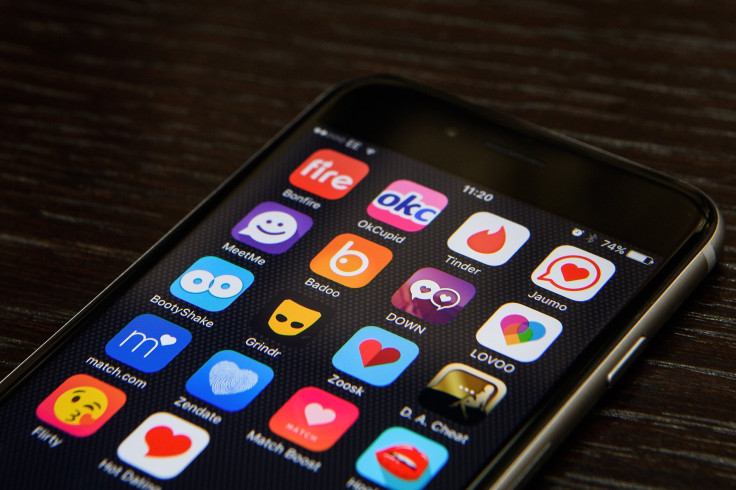Dating App Requires Verbal Sexual Consent Amid #MeToo Era

The discussion of sexual assault and harassment are all the more paramount in an era dominated by the #MeToo and Times Up movement, but now there is a mobile dating application that is working towards making such complaints a thing of the past.
Enter “Yes to Sex,” a dating app created in 2016 that requests for an explicit sexual consent agreement to be made between both parties. The app, which is available for download through Apple’s App Store and Google Play, requires users to verbalize the words “yes” or “no” before engaging in sexual relations with another user. The entire process is expected to take no more than 25 seconds, Yes to Sex’s website claimed.
“The media talking about consent is the first step in the right direction of making it the norm to verbally ask a potential partner straight-up every time, if they are interested,” Wendy Geller, the app’s president, CEO and inventor, told International Business Times. “Obviously now, with the #MeToo and #TimesUp shocking revelations of so many public icons in alleged work-related incidences and the reality out in the open how their thoughtless actions caused physical and mental trauma to their victims, consent is in the forefront of the media.”
“Next month the YES to SEX app’s update will reflect a more inviting multi-gender beginning. ‘I am: Male or Female’ will be replaced with: ‘Please refer to me as she, he, they, zie or per.’ This also clarifies the sexual orientation of the potential partner, especially for first-time hookups,” Geller added.
The user's voluntary verbal consent is saved within the app. If an individual decides to no longer consent to the encounter, they can simply hop into the app to record an updated answer. By using the same protocol as the US Department of Defense, Yes to Sex stores the time, date, location, choices when using and untraceable voice recordings in its servers free for one year.
“Rather than perpetuating rape myths about stranger sexual assaults by handing out rape whistles or teaching self defense classes to prevent sexual violence, Geller truly gets to the root cause of the issue — giving, and most importantly, getting — consent,” Keith Labelle, who is a supervisor for the Bystander Intervention Program at the University of Rhode Island, said in a statement issued to IBT. “What better way to get millennials to recognize the importance of consent than by meeting them where they’re at — on their phones?”
“No longer will people be able to say they didn’t know what their partner did or didn’t want. Geller’s technology virtually assures that both sexual assaults and STDs will be a thing of the past,” Labelle added.
LegalFling is another app with a similar model to Yes to Sex. Created by a Dutch firm in wake of the #MeToo movement, it serves as the first-ever app to use blockchain technology to record explicit consent regarding sexual relations between its users. The app’s creators also claim LegalFling would be beneficial within “steady” relationships.
Proving consent, or lack of, in sexual encounters can be incredibly complex. But not if we put consent....ON THE BLOCKCHAIN https://t.co/f8K5Z37Odm
— Tom Gara (@tomgara) January 10, 2018
“Think of a spicy photo or video you made with your partner. You don't want that to go viral when the relationship ends,” the app’s website read. “We’ve added these as extra possible clauses one should consent with before the act, so your fun is not shared with the rest of the world afterwards.”
The issue of consent made headlines late last year as allegations of sexual harassment and assault were made in Oct. 2017 against movie mogul Harvey Weinstein, who has repeatedly denied all accusations. This resulted in the reveal of misconduct of other several prominent media figures including Kevin Spacey, James Franco, Matt Lauer, Russell Simmons, Louis C.K. and more recently Aziz Ansari, among others. Therefore, many women — and men — have been more vocal about the controversial subject matter.
The #MeToo movement, launched by civil rights activist Tarana Burke in 2006 way ahead of the hashtag, kickstarted the fight against alleged sexual predators in the media. It was even named as Time’s “Person Of The Year” in 2017 as a part of the “Silence Breakers”, which featured the likes of Taylor Swift and Ashley Judd on the cover.
Over 300 women working within the film, television and theater industry also banded together to launch the Times Up campaign at the start of 2018. The movement has raised more than $18 million to date through a GoFundMe fundraiser, with actresses like Meryl Streep and Reese Witherspoon each donating $500,000, Time reported. Seth Meyers contributed more than any other male celebrity at $50,000, however.
“The struggle for women to break in, to rise up the ranks and to simply be heard and acknowledged in male-dominated workplaces must end,” the group said in a letter published on its website. “Time’s up on this impenetrable monopoly.”
Representatives for Times Up and #MeToo did not immediately return International Business Times’ request for comment.
© Copyright IBTimes 2024. All rights reserved.






















